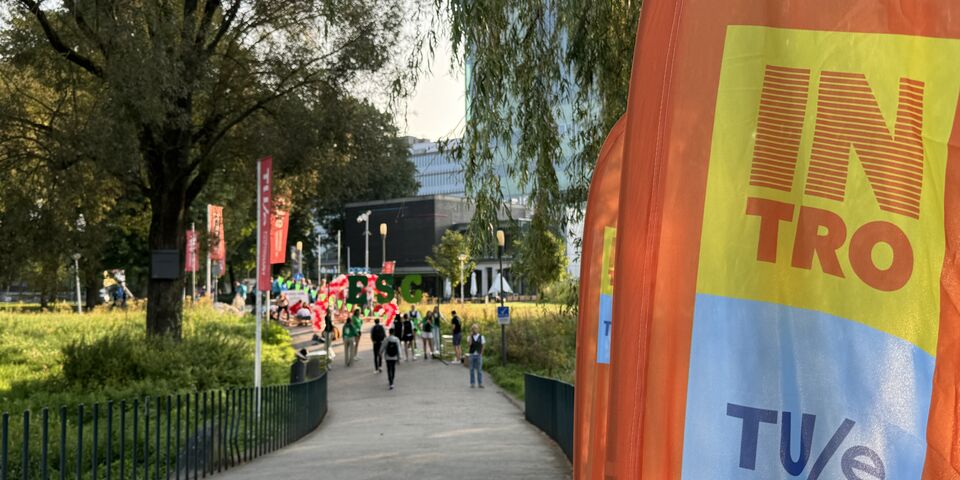Why does the Intro cost what it costs?
This year's Intro costs 130 euros. An additional 60 euros is charged if you also want a place to sleep at the campsite. For that 130 euros, students get access to all activities, five meals, and admission to the Vibes festival. Quite a bit of money for students, so why is it so expensive? And what do other universities charge? Cursor dove into this matter.
One breakfast and four dinners have been arranged for the intro kiddos, but lunch is their own responsibility. Previous evaluations have revealed, among other things, that "the lunches were experienced as ‘poor’ and that a lot of food got wasted, due to the growing group of students with diverse backgrounds," says Roeland Schelfhout of the Central Intro Committee (CIC).
"In consultation with the student associations, we decided to offer four dinners and a closing breakfast. Dinner is an important part of the day, linking the daytime and evening programs, and also an important opportunity to get to know each other better."
In addition to the 130 euro fee for the Intro itself, an additional 60 euros will be added for a place to sleep if a student doesn't have their own room or a place to stay over. A campsite has been set up for this purpose. "The 60 euro campsite fee includes not only a spot on the campsite, but also a shared group tent for those who can't or don't want to bring their own tent, shower facilities, and a fresh breakfast every day," Schelfhout explains.
Vibes
The Vibes festival is intended for vocational and (applied) university students. But what if you're not a festival enthusiast and don't want to go to Vibes? Then you can't buy a discounted ticket for the Intro. Schelfhout understands this. "The Vibes festival is an important collaboration between the various educational institutions in Eindhoven and the municipality of Eindhoven. The social cohesion among the various students and the connection with the city also play a role in its organization. To encourage the Intro kiddos to attend the Vibes festival - because TU/e believes it's important to get cross-connections between the various students - the university, together with sponsors, covers the cost of the Vibes ticket, so this is not part of in the ticket price students pay."
To be able to get drinks during the activities and at the on-campus parties, it's recommended to add credit to your Intro wristband. Students can choose the amount themselves. Any remaining money will be automatically refunded after the Intro. Paying by card at the bars is not possible, except for employees attending the All TU/egether festival on Thursday, August 21.
Prices for other introduction programs*
In 2023, TU/e was criticized for having the most expensive Intro program in the Netherlands at the time: 140 euros per person. Now it's cheaper than it was then. But what are other universities actually charging this year?
For the ‘Intreeweek’ for bachelor students at the University of Amsterdam (UvA), there are two options: an early bird ticket for 110 euros and a late bird version for 132 euros. The mixed ‘TOP week’ in Tilburg costs 105 euros and includes activities and dinners. At TU Delft, the ‘OWee week’ costs 98.50 euros, considerably lower than the aforementioned intro programs, and includes all meals. There are even cheaper intro programs, such as those at Radboud University, but there you pay for a basic program (60.50 euros) that is supplemented with program-specific activities at varying prices, making the total price difficult to compare. The University of Groningen offers its ‘KEI week’ at a very competitive price: 47.50 euros for an early bird ticket and 52 euros for a late bird ticket. This is the cheapest ‘basic ticket’ among Dutch universities, but it doesn't include meals. Not a completely fair comparison, but there students do have a choice about what they eat and how much they spend on their food.
So, TU/e is in the high end of intro prices in the Netherlands, but why is that? Schelfhout explains that the programs and their durations vary widely across the Netherlands, making them difficult to compare. TU/e contributes a significant portion of the costs. Sponsors, partners, and associations also contribute, and the students themselves also pay a part. Ultimately, TU/e guarantees to cover the costs, should the aforementioned funding ultimately prove insufficient.
*The prices listed for introduction programs were found on the websites of the various universities; errors in their information reserved.
This article was translated using AI-assisted tools and reviewed by an editor.


Discussion